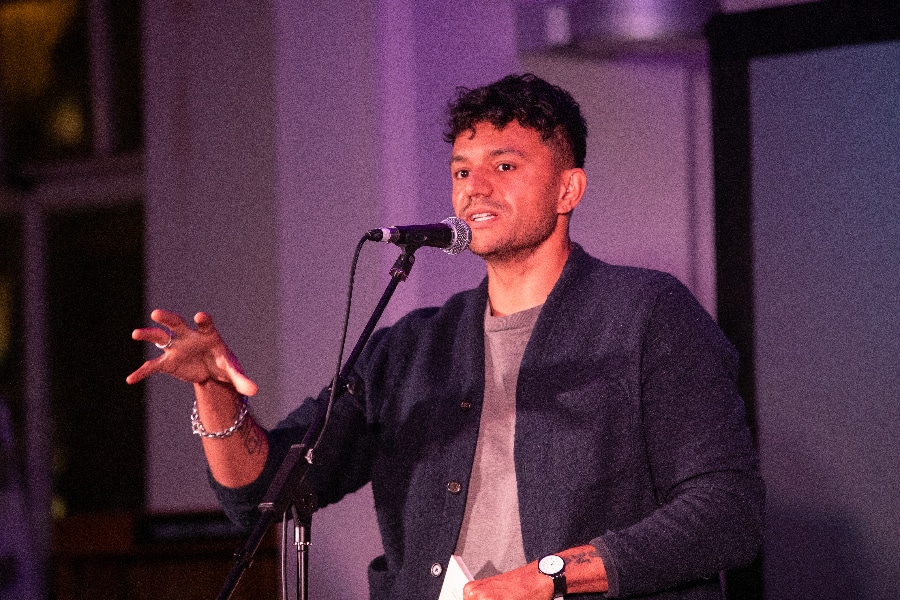A trio of Black poets performed as the headlining acts at the city’s first annual spoken word festival.
Acclaimed writers Terrence Hayes, Rachel Long and Raymond Antrobus each read a selection of powerful and unique poems before a packed-out audience at The Wardwick in the city centre.
Opening the night, Raymond Antrobus recited works relating to both heritage and fatherhood. The MBE recipient, who discovered he was deaf at the age of six, closed his set with a moving poem about his experiences about discovering the joys of teaching sign language to his son.

Although the second performer, Rachel Long, was sadly unable to attend the event in person due to illness, she was still able to share her creativity by recording a set via video to be screened to attendees on the day. Making the most of the situation, she delivered a series of intimate poems about past relationships – both romantic and familial – and entertained the audience with wry one-liners between recitals.
The closing act, American poet Terrance Hayes, was arguably the most anticipated of the night, having had his work featured in the likes of The New Yorker and The American Poetry Review – making this a rare opportunity to see one of the world’s most celebrated contemporary poets perform live in the UK. The room burst with applause as he took to the stage, and the guests left feeling inspired by a night of great poetry.
Derby Poetry Festival took place from 2-8 October at various venues around the city



